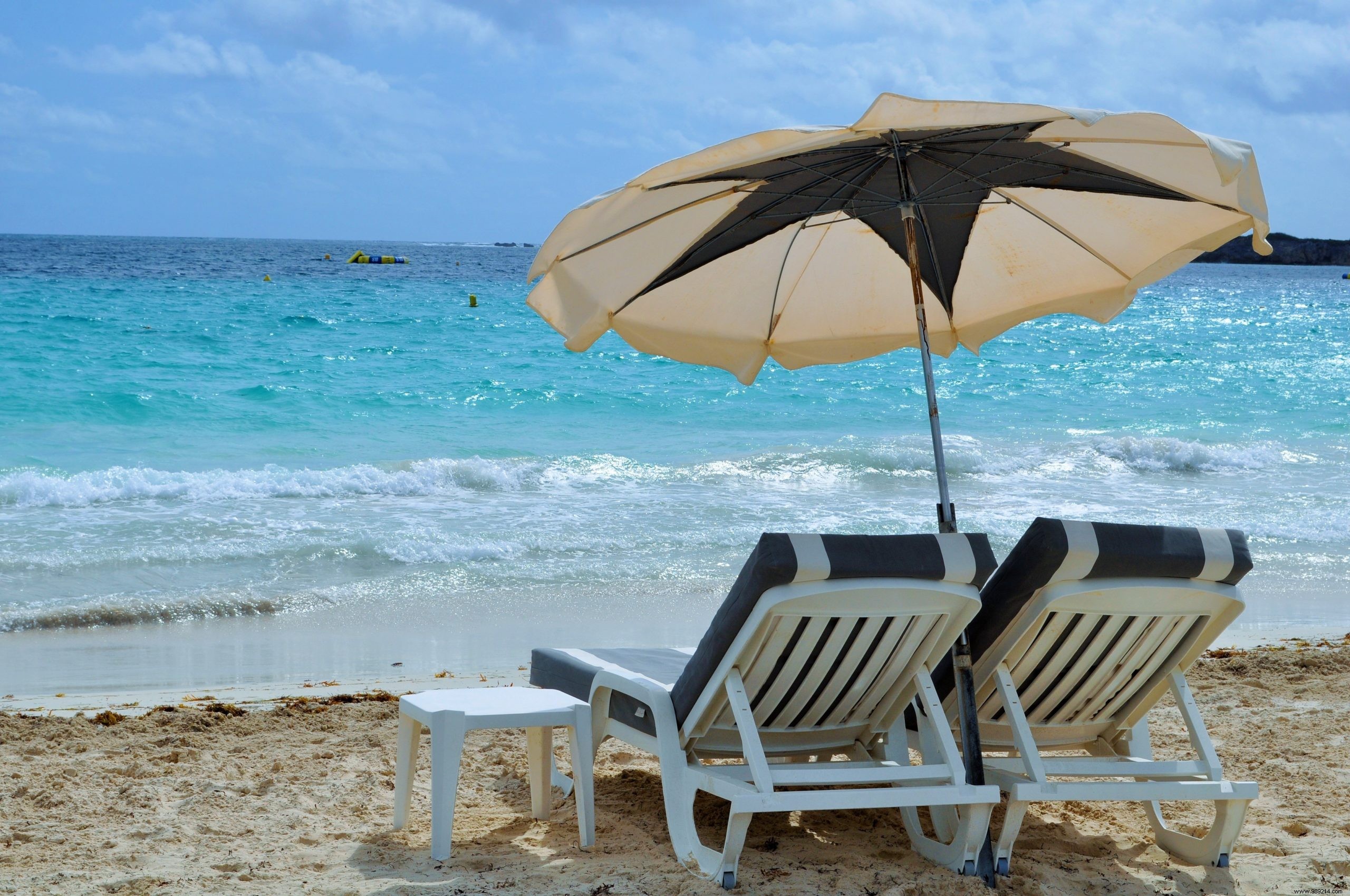Among beach vacationers, many take a parasol with them. To be planted in the sand, its mission is to offer a little respite to swimmers when the sun is aggressive. However, it is also possible to reflect on its alleged ability to protect the skin from sunburn.
In reality, the parasol gives a false sense of security. It is therefore a kind of popular belief. Let it be said, the problem comes above all from the people:many think that the sun's rays are straight lines coming from the sky that fade after reaching an obstacle - here, the parasol. And yet, ultraviolet (UV) rays can bounce in our direction in many cases.
Remember that the clearer a surface, the more light it reflects. According to a study published in the Journal of Clinical Pathology in 1993, sand can reflect about 15% of UVB rays . However, if the ozone layer partially blocks UV rays, UVB rays are responsible for the majority of skin cancers. However, if the parasol is near a body of water, 8% of the rays reach people – 4% if it is grass.
Besides, a cloudy day is not synonymous with optimal protection against the sun's rays. Indeed, part of the UV is reflected back to the sky due to the presence of water in the clouds, but half still manages to pass through.

Staying in the shade of a parasol is therefore no guarantee of safety. In reality, therefore, it is best to combine parasol and sunscreen , as indicated by another study published in the journal JAMA Dermatology in 2017. Obviously, the parasol should ideally be tilted according to the angle of the sun. In addition, the harmful effects of the sun on our skin can last up to three hours after UV exposure , according to work published in the journal Science in 2015.
Also remember that Science now knows that the sun's rays damage skin cells by modifying their DNA. Over time, these same cells can develop into melanoma, one of the most dangerous forms of skin cancer. In 2019, Israeli researchers were testing a new nano-vaccine that prevents the spread of melanoma in mice. While the first results seem promising, the hope of a vaccine for humans is permitted.